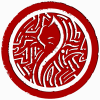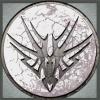Search the Community
Showing results for tags 'linguistics'.
-
This is basically a club for people who like languages and are interested in them and writing systems! This can also be a club to share languages/writing systems we’ve created. I’ve seen people who created languages here on the Shard, but noticed there wasn’t a dedicated thread for them, so I made one! If you’re interested in them, please join!
-
1
-
- languages
- linguistics
-
(and 2 more)
Tagged with:
-
I was tickled by the idea that Brandon Sanderson noted that in Alethi, Kholin is pronounced "Kho-LEEN" with a fricative like a Hebrew chet, and who doesn't love to get nerdy and needlessly nit picky about pronounciation?? So here is a tongue-in-cheek entreaty to pronounce Kholin 'correctly'. Obviously, the relevant WoBs are linked! The lyrics are below, and the mp3 is attached at the bottom of the message, as usual it's me singing accompanied by me on the ukulele. To the tune of "Jolene" by Dolly Parton Kholene - rewritten by cosmere_play Kholin, Kholin, Kholin, Kholin No one says it right, this is a theme Kholin, Kholin, Kholin, Kholin Kate and Michael do not say Kholin I saw K-H-O-L-I-N And read it “colon” till the end But the only colon’s in that Shardplate scene I’d only read the book before I didn’t know I needed lore Some Words of Brandon to pronounce Kholin When he created names anew He borrowed ideas from Hebrew Then changed a bit to make it Alethi To his main characters he gives This voiceless velar fricative The K-H in Kholin makes us breathy Kholin, Kholin, Kholin, Kholin I’m begging you to say it as Kholin Kholin, Kholin, Kholin, Kholin Even Brandon doesn’t say Kholin Come with me and lay the bridge Enunciate a fake language Correct Alethi yes that is my scheme You've got the chance, don't hesitate To feel your dorsum resonate And be pedantic to a large extreme Kholin, Kholin, Kholin, Kholin Brandon says he cannot say Kholin Kholin, Kholin, Kholin, Kholin I’m begging of you to please say Kholin I’m begging you Kholin Kholene_cosmereplay_-_parody_of_Jolene_Dolly_Parton.mp3
- 3 replies
-
7
-
- linguistics
- kholin
-
(and 2 more)
Tagged with:
-
Who else finds it amusing that the American English accent is older than the British one? And also thinks it’s very funny when people say, “I can’t imagine historical English speakers with American accents! It’s too modern!” Uh... You do know that the Brits only tossed the R AFTER the American Revolution, right guys? So this is a thread for anyone else who finds it really, really funny that Shakespeare sounded more like modern Americans than modern Brits.
- 5 replies
-
- linguistics
- accents
-
(and 2 more)
Tagged with:
-
Previous WoB has shown that the names of many of our favorite Northern Scadrians from the Central Dominance sound French. Without “hearing” the language or seeing it written, we can only assume it, as a whole, is French sounding. source As I’ve been re-reading BoM, I noticed that Allik’s use of language sounded distinct from what we’ve been accustomed to from Northern Scadrial. His words reminded me of a Germanic language. I first noticed this when he used the medallion to speak in the language of our protagonists, because he kept ending sentences with “yah”. This is the same sound that the word “yes” in German makes, and is spelled “ja”. Then came the word “Jaggenmire” that didn’t translate to our protagonists’ language. Marasi tried to pronounce it and came up with the following: She hears the “Ja” sound as a “yay” sound, which is similar to Allik’s frequent use of “yah”. This was further evidence to me that Allik’s language is Germanic in nature. Now it was time to dig deeper, and find other words to help provide evidence for my hypothesis. After further research, I think his language is actually linguistically similar to Northern Germanic— i.e., Scandinavian, specifically Danish. (Note, Denmark is literally just north of Germany.) I started my linguistic sleuthing with Allik’s name and googled German names similar to “Allik”, and came up with the following list (with their meanings): · Alrik: “Noble Leader” · Aldrik: Noble Friend” It appears that the shared root is “Noble”. Maybe this means something about who Allik will be one day? However, these names added an extra consonant, so I kept looking and found the name “Alek” in Danish. Alek is short for Aleksander, which means “Defender of Men”. Is this where Allik gets his name from? Will he be a defender of Southern Scandrian peoples and a noble friend to our protagonists? Allik’s name wasn’t enough for me. What about words that he says in his language? My favorite words he used were the names for Preservation and Ruin: I first googled to see if these names were German words. “Herr” means “Lord” in German…this seemed like a good sign to me! Unfortunately, “Frue” is not a German word. But it is Danish. In Danish, it literally means “wife” or “Ma’am” and “Herr” literally means “Mister”. So we have Mister and Missus…just like how Allik describes them. When Allik first realized Wax was an Allomancer he said a few words aloud in his own language that Marasi overheard: “Fottenstall” doesn’t really translate to much, even if “fotten” means “feet” in Norwegian. However “hanner konge” has a very interesting meaning in Danish: “Male King”. Allik notes that Wax seems very powerful, like the Sovereign, and thinks he needs to always use some type of title for him. The Sovereign described himself as a former King from Northern Scadrial. Thus, it doesn’t surprise me that Allik may be asking Marasi if Wax is a king. I didn’t look at very many other words other than these, because all of this already seemed like good evidence that the Southern Scadrian language is similar to Northern Germanic languages, specifically Danish. If people from Northern Scadrial speak with a French accent/sound, then it seems entirely plausible that the southerners speak some type of Germanic/Scandinavian language, given the clues. What do you all think?
- 18 replies
-
19
-
- southern scadrial
- linguistics
-
(and 5 more)
Tagged with:
-
This is just a theory. It's probably too simple to be the whole story. But it makes sense, and I think it could be useful for (among other things) identifying Alethi characters in foreign lands, and creating Alethi OCs for fanfiction. In Writing Excuses, Brandon once mentioned a linguistic paradigm for "classical" Alethi names. He didn't describe it in detail, but he said it was invented to explain 'Dalinar,' which didn't really fit with the Vorin naming convention. He also said that 'Kaladin,' which he came up with by altering 'paladin,' conveniently fit this new classical paradigm. He also said this, in a 2014 interview: But there's a much simpler pattern in these names. And here it is: A simple alternation of Consonants (C) and vowels (V). (C) V C V C V C The initial consonant is in brackets because it's optional. It can be dropped, so names begin with a vowel. But the rest of the sequence doesn't change. No double vowels or double consonants. (Digraphs, like Th and Sh, count as one letter because they represent a single phoneme.) This holds true for the following Alethi names. Dalinar Adolin Renarin Gavilar Elhokar (assuming Lh is a digraph, the Alethi version of a double-L in English) Kaladin Meridas Amaram (coincidentally also a proper Vorin name) Aladar Arafik Avarak Avaran Alabet Lamaril Jakamav Kalishor Isasik Salinor Talanor Thanadal Tinalar Helaran (not Alethi, but close) Notice that all of these are men. This paradigm is only used for male names. As far as I can tell, all Alethi men have either Vorin names, or names in this pattern. (Vorin meaning palindromic, with one letter added, subtracted, or changed.) The only complication is Restares, whose name is neither Vorin nor classical. It violates my classical pattern because of the "ST" in the middle. But since Restares hasn't been confirmed as an Alethi, this may not be a problem. I'm wondering if anyone can see any additional patterns or rules that govern this system. Just for fun, I will now list some names from other Cosmere works that conveniently match this pattern. Galladon. Aredel. Luthadel. Aledin. Aradan (Yomen). Bevidon. Bavadin! Devanex. Dukaler. Galivan. Goradel. Heberen. Ishathon. Caberel. Nikolin. Arelon. Opelon. Duladel. Seraven. Enelan. And now some names from outside the Cosmere, to illustrate the general fantasy-friendly vibe of this paradigm: Saruman. Denethor. Boromir. Faramir. Azeroth. Suramar. Dalaran. Selidor. Eragon. (Po) Dameron. Caladan. Muradin. Mogenar. Telamon. Galadan. Malekith. Malacath. Akatosh. Zenithar. Kynareth. Erikur. (Obviously it also fits many not-so-fantastical names, like Cameron and Oliver. But let's leave reality out of this. Although Pokemon also fits.)
-
I am a sucker for linguistics these days, so this note from Brandon (reddit) attracted my attention. Parshendi, Shin and Horneater all have dawnchant-derived languages. This is really weird to me not because of linguistics, but because of all humanoid races/species on Roshar (Aimians aside), Parshendi look like the "most Rosharian", while Shin appear to be the "most imported"...
-
Magic Pictures Symbology and Patterns as Focal Filters Premise I've never really bought all the talk about the Focus of a magic. Every once and a while a Cosmere terms creeps in from a Brandon interview, and Focus is one of these. He uses the word focus a lot, but only rarely does he talk about it in a Cosmere sense. We've learned some things: metals are a Focus on Scadrial, Commands are a Focus on Nalthis, Aons or shapes on Sel are a Focus, and no one is sure what's going on on Roshar yet.[1] The more we learned, though, the more I felt our fundamental understanding of what was going on with a Focus was wrong. Especially with metals. First metal was a key, and the sDNA of the Allomancer was what you needed.[anno] Then metals weren't a focus after all, the molecular pattern of the metal was.[WoB][WoB] But the mists let you use Allomancy with no metals at all, so where was the necessary pattern? And people started talking about how a Focus was Physical or Cognitive, and no one seems to be able to find the source of that. I can't see any evidence supporting a single realm focus either - Investiture is known to transcend realms itself.[3] I've been gathering a lot of notes about everything, and I have a lot of theories on em'. I can't share my whole framework of Focuses - not only do I not have all the pieces I want yet, but it's super frickin' long, just for the overview. I'd like to share my notes here on one aspect that I've been talking about on IRC a bunch lately, that is very intriguing. Hypothesis The only necessary Focus for any given magic is a pattern. Assumptions Gonna lay down some assumptions here first, each one of these is a theory or two of their own, really. But we're gonna roll with it. Investiture is a waveform, that gets passed through a Focus to produce a magic effect.[Elantris] A Focus does not filter Investiture like a prism, or a piece of red glass. It modifies the frequency like an AC adapter.[WoB] A Focus exists on a scale of Explicit to Implicit, where implicit basically means more Cognitive visualization. This is not an intrinsic value, it's a descriptor. Investiture expands mental capacities, and scales by quantity.[Ars Arcanum] This is different from Mental Speed (zinc). Brandon is imprecise in his descriptions on occasion, because he doesn't want to reveal too much about the underlying system. Logic and Evidence I've long been interested in the role of symbols in the Cosmere, and my interest peaked when I found the Word of Brandon that says that symbols are built into his books to help make the magic systems of the Cosmere feel unified.[4] My theory starts at a bit of a strange place. When Kaladin speaks the third Ideal in Words of Radiance, a large symbol in frost appears around his feet.[WoR] The glyph is recognizable as the symbol for the Windrunners. That's pretty strange, and convenient, isn't it? That the use of magic should naturally produce readable language. How odd. Of course with a weather eye out for it, I looked for more instances of this. Of which there are plenty. According to one Word of Brandon, the first Aon to be discovered by the first Elantrian, Aon Ehe, apparently appeared on a coal in her fireplace when she was taken by the Shaod.[WoB] Aon Ehe brings flame. Aons, as we know, eventually became the basis for written language in Elantris. It's also been noted that the constellations are Aons as well.[Elantris] We're starting to see a link here - symbols appear naturally near magic, and those symbols are often used for language. What other instances do we have of this? The Dahkor monks use a strange magic where the develop bone growths, growths that simulate their alphabet. On Scadrial, the letters they use, the Steel Alphabet, are symbolically attached to each Allomantic metal. On Roshar, as we've seen, the general language of glyphs is associated with both Radiants, Surges, Heralds, it is seen on Shardplates and Shardblades, and burnt in effigy as prayers. In a much more tenuous connection, on Nalthis there is a language of colours. There is a clear link here between magic, symbols, and languages. The original Word of Brandon led me to believe that this link is causative - people are not developing words in language to describe magic, they are developing language to mirror the magic they see all around them. Indeed, we know that Aons exist independent of mankind.[WoB] So why do these symbols appear, though? What makes them show up, how are they important? For a long time, we believed that the Focus on Scadrial was metal, on Nalthis it was Commands, and on Sel it was the Aons (or generally form based). Then Brandon swooped in, and said "Sort of, guys, but not really." It turns out, the focus on Scadrial was not a metal - it was the molecular pattern of the metal. And the focus on Sel was really more about programming than form. And Nalthis? We don't need a Word of Brandon to see that if the Focus is Commands, and Commands require spoken words in your native language, that the Mental Command ability of the God King shouldn't work at all. And when Vin and Elend absorb the Mists, they don't need a focus at all, they've got power to spare and it naturally takes the form of the Allomantic powers, as if they already had the focus available. So what's going on? Deduction The metals, the Aons, the Focuses as we know them are distractions from the underlying foundation at play here. The true heart of a Focus is that it takes Investiture, and changes the frequency of it to a new one. And how it does that is by passing the Investiture through a pattern. These patterns are the true Focus, and are represented by the symbols and glyphs we see the magical effects in nature create. This doesn't mean that the symbols we have are all magical in nature, and putting some Investiture in a Surge glyph would make a fabrial. Instead I suggest what we're seeing is a shadow of the pattern. In the same way as a shadow puppet looks like a rabbit, but our hands do not, we get the appearance of a symbol when certain criteria are met during a manifestation of magic. These are the symbols we know. Now, the idea of a pattern being the focus is strongly supported by the Word of Brandon talking about the molecular pattern of metals. Do we have any other instances where a pattern is mentioned as being very clearly associated with magic? You know I wouldn't ask unless I had something to tell, and I do! In Navanni's notes, she talks extensively about the Stormlight generated pattern of Fabrials, a pattern which is apparently not normally visible.[link] Each pattern corresponds to a Fabrial usage. Of course as well, let's not forget Sel. All the visible Foci on Sel are drawn like a symbol or pattern. Commands are perhaps linguistic patterns too. Back up the truck! If Commands are linguistic patterns, then Mental Command should be even less possible. Hahah, your arguments are invalid! In every magic system, there are parts of magic that don't seem to require being explicitly focused. And there are parts that do. What's most interesting is that the explicit/implicit requirement seems to shift. Soulstamps must be painstakingly drawn in detail, precisely, to determine the effect. Aons are similar. Awakening doesn't seem to care much at all, as long as you have a strong picture in your head, one or two words will produce extremely complex effects. Allomancy is pretty rigid, each metal does one thing and one thing only. Yet how do Allomancers choose which metal to push on when burning Iron? Burning it doesn't push everything, it just shows some blue lines. And people don't have some kind of built-in sudo-magnetic orfice to use. The answer is that patterns do not require a specific manifestation. The pattern for metal is not required to be in metal - in fact, the entire pattern is not in the metal at all. The necessary patterns can be generated entirely by the mind. We know that Investiture gives expanded mental capacity - I'll write up the full theory about that sometime. It's this ability that allows people to substitute mental patterns to supplement the physical ones. It is these mental patterns that allow the illusion Aons to have so much detail compared to the symbol. It is these mental patterns that let a coinshot choose what to push. These are the patterns that let an Awakener use only a few words instead of the long paragraphs Brandon originally envisioned.[anno] And it's this mental capacity increase that explains the Heightenings. As the Investiture increases, the mental capacity increases, and the ability to create mental patterns as a Focus increases. First they gain instinctive basic Awakening Commands. Then they discover other Commands easier. Then they gain instinctive understanding of other Commands, learn to Command newer and more complex things, Command from a distance, and finally they do not even need to speak, they can Command with their mental patterns alone. This exposes the true nature of the Focus as we seem them - metal, Commands, etc, they are naturally occurring instances of the pattern (or a portion of the pattern) needed to Focus the Investiture in a given way. They're crutches. The more mental capacity a magic user has, the easier it is for them to dispose of the crutch and use their mind instead. It's quite plausible that we've seen this in another instance from the God King. When Vin and Elend absorb the Mists, they gain a massive amount of Investiture, and no longer need metals to Focus the power they gain from Preservation. The facility of Surgebinders in using their powers in a variety of unique and odd methods may also be an instance of this - they ingest Stormlight, show expanded mental capacity when doing so, and have an extreme level of flexibility in the use of their Surges compared to other rigid systems such as Allomancy. It's notable that Fabrials are not nearly so flexible with their use of Surges. Conclusion For those who thought this theory was far too long to read, here's the tl:dr; A Focus is actually fundamentally a pattern The known Focus (metals, Aons, etc) are an already existing instance or partial instance of the needed pattern, and are simply ways to express that pattern easier With enough mental capacity, the pattern can be generated entirely mentally The natural symbols observed in magic are the shadows cast by the pattern of the Focus Extrapolations This theory is pretty interesting in that extrapolating it is cool. It suggests that, if you could make a person hold a lot of Investiture, such a person could use their magic mentally - an Elantrian could use an Aon without drawing it. In addition, it suggests that mental capacity is essential for using magic with more fine control and finding esoteric skills, such as the ability of a coppercloud to shield emotions. Furthermore, it suggests that people with Shardic levels of Investiture can create powers outside of the known and expressed Foci - thus why Preservation-level power has no problem moving a branch (or a planet) with magic, but the Lord Ruler is limited to pushing on metals. And for technology... Lots of fun stuff implied here, but I'll leave all that for another day! Quotes and References:
-
So I was thinking about Feather's WoR Splintercast the other day. Specifically about her musings on chapter 45 and this observation from Hoid: As Feather pointed out, it's strange to think that there's a word/morpheme in Veden and/or Alethi that Hoid knows the meaning of but the people of Roshar don't. What I'm wondering is if the Rosharan hound is a loanword from another Cosmere language. Plenty of other people have pointed out that shash is both a letter on Nalthis and a glyph on Roshar. We have a WoB that says there are "interesting connections" between languages/cultures, at least in part because all the Shards have a common origin. But what if it's more than that? What if an early worldhopper (Nalthian or otherwise) saw axehounds, then known by another name, and was the first one to call them hounds (in his/her native tongue.) The name stuck on Roshar, so now they have a word whose original definition they don't actually know. Thoughts?
- 16 replies
-
1
-
- axehounds
- linguistics
-
(and 3 more)
Tagged with:


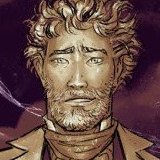
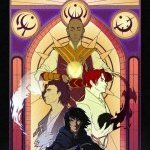
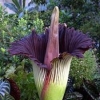
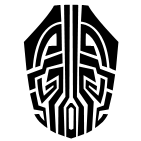
(187x200)(94x100).jpg.2cc51a32db34fd541e7fa894f28ebbfd.thumb.jpg.f6e7f91e31e84c4c9375ba9866dd668f.jpg)
